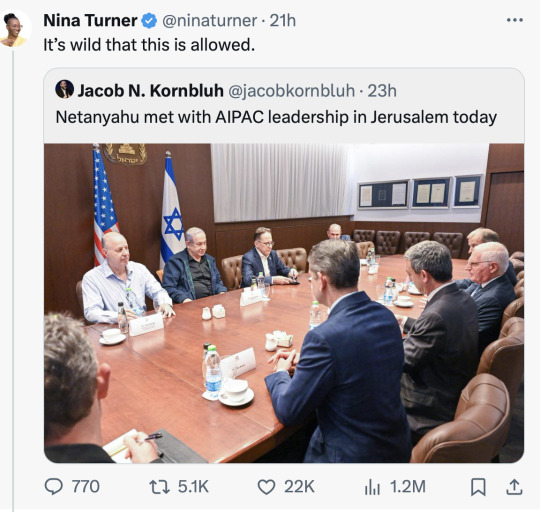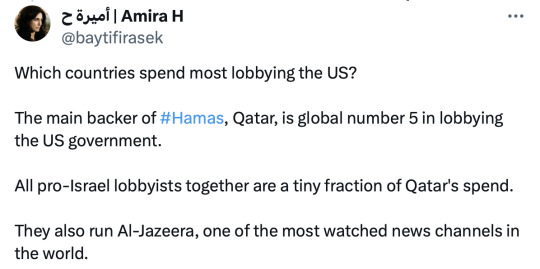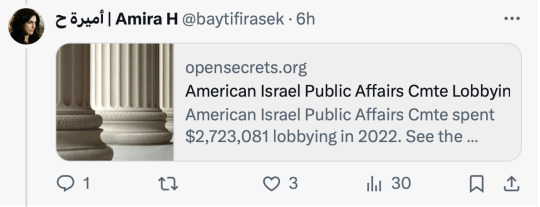#lobbying
Video
youtube
How the Corporate Takeover of American Politics Began
The corporate takeover of American politics started with a man and a memo you've probably never heard of.
In 1971, the U.S. Chamber of Commerce asked Lewis Powell, a corporate attorney who would go on to become a Supreme Court justice, to draft a memo on the state of the country.
Powell’s memo argued that the American economic system was “under broad attack” from consumer, labor, and environmental groups.
In reality, these groups were doing nothing more than enforcing the implicit social contract that had emerged at the end of the Second World War. They wanted to ensure corporations were responsive to all their stakeholders — workers, consumers, and the environment — not just their shareholders.
But Powell and the Chamber saw it differently. In his memo, Powell urged businesses to mobilize for political combat, and stressed that the critical ingredients for success were joint organizing and funding.
The Chamber distributed the memo to leading CEOs, large businesses, and trade associations — hoping to persuade them that Big Business could dominate American politics in ways not seen since the Gilded Age.
It worked.
The Chamber’s call for a business crusade birthed a new corporate-political industry practically overnight. Tens of thousands of corporate lobbyists and political operatives descended on Washington and state capitals across the country.
I should know — I saw it happen with my own eyes.
In 1976, I worked at the Federal Trade Commission. Jimmy Carter had appointed consumer advocates to battle big corporations that for years had been deluding or injuring consumers.
Yet almost everything we initiated at the FTC was met by unexpectedly fierce political resistance from Congress. At one point, when we began examining advertising directed at children, Congress stopped funding the agency altogether, shutting it down for weeks.
I was dumbfounded. What had happened?
In three words, The Powell Memo.
Lobbyists and their allies in Congress, and eventually the Reagan administration, worked to defang agencies like the FTC — and to staff them with officials who would overlook corporate misbehavior.
Their influence led the FTC to stop seriously enforcing antitrust laws — among other things — allowing massive corporations to merge and concentrate their power even further.
Washington was transformed from a sleepy government town into a glittering center of corporate America — replete with elegant office buildings, fancy restaurants, and five-star hotels.
Meanwhile, Justice Lewis Powell used the Court to chip away at restrictions on corporate power in politics. His opinions in the 1970s and 80s laid the foundation for corporations to claim free speech rights in the form of financial contributions to political campaigns.
Put another way — without Lewis Powell, there would probably be no Citizens United — the case that threw out limits on corporate campaign spending as a violation of the “free speech” of corporations.
These actions have transformed our political system. Corporate money supports platoons of lawyers, often outgunning any state or federal attorneys who dare to stand in their way. Lobbying has become a $3.7 billion dollar industry.
Corporations regularly outspend labor unions and public interest groups during election years. And too many politicians in Washington represent the interests of corporations — not their constituents. As a result, corporate taxes have been cut, loopholes widened, and regulations gutted.
Corporate consolidation has also given companies unprecedented market power, allowing them to raise prices on everything from baby formula to gasoline. Their profits have jumped into the stratosphere — the highest in 70 years.
But despite the success of the Powell Memo, Big Business has not yet won. The people are beginning to fight back.
First, antitrust is making a comeback. Both at the Federal Trade Commission and the Justice Department we’re seeing a new willingness to take on corporate power.
Second, working people are standing up. Across the country workers are unionizing at a faster rate than we’ve seen in decades — including at some of the biggest corporations in the world — and they’re winning.
Third, campaign finance reform is within reach. Millions of Americans are intent on limiting corporate money in politics – and politicians are starting to listen.
All of these tell me that now is our best opportunity in decades to take on corporate power — at the ballot box, in the workplace, and in Washington.
Let’s get it done.
#youtube#videos#video#powell memo#corporations#wall street#finance#corruption#politics#lobbying#government
1K notes
·
View notes
Text
Alabama Senate Bill 23 would make it a Class C felony to manufacture, sell or distribute cultivated meat. The bill passed the Senate without opposition and moved to the House.
The bill was sponsored by Sen. Jack Williams, who is a cattle farmer.
103 notes
·
View notes
Text



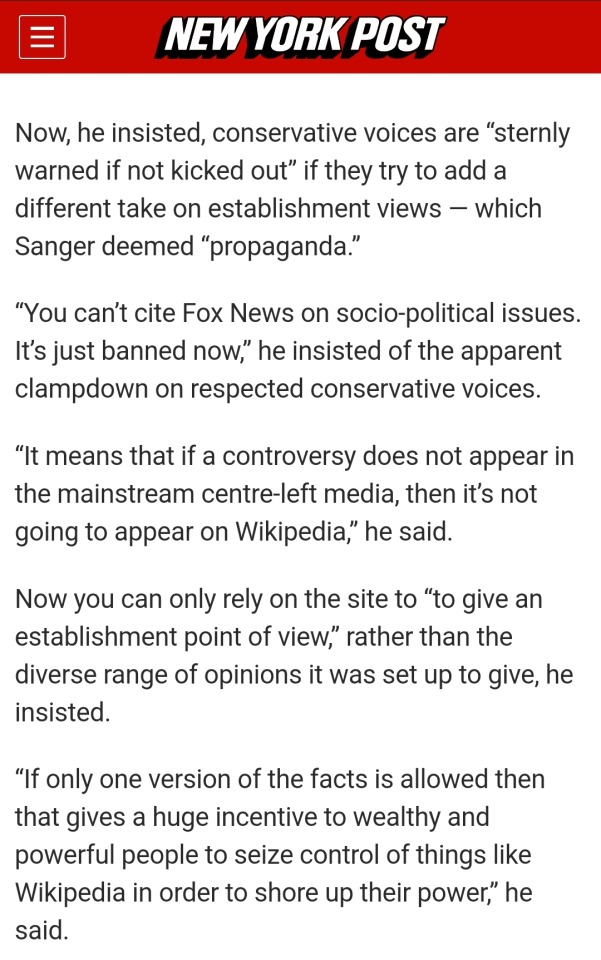

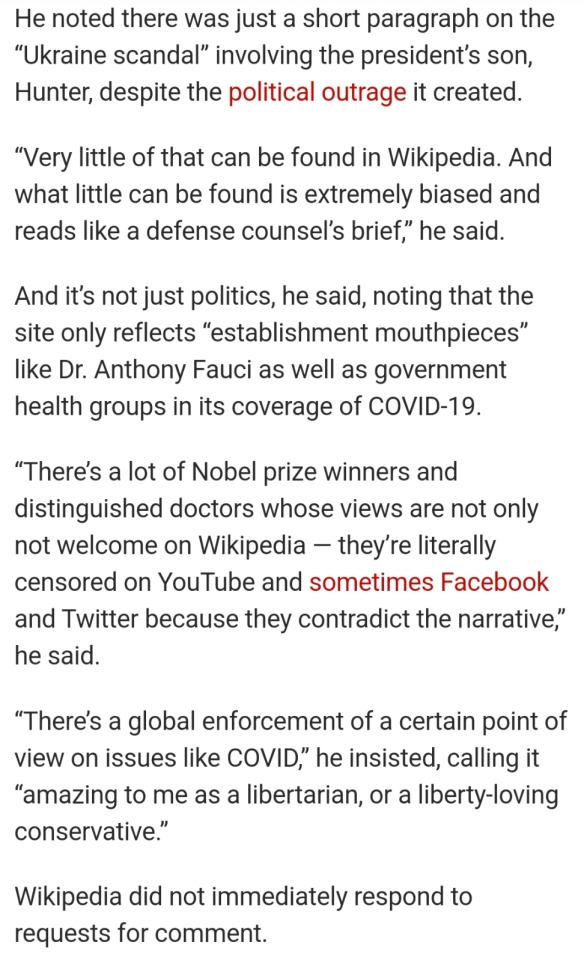
https://twitter.com/Plinz/status/1605310467701776384
https://nypost.com/2021/07/16/wikipedia-co-founder-says-site-is-now-propaganda-for-left-leaning-establishment/
#wikipedia#twitter#new york post#ny post#larry sanger#wikimedia#wikimedia foundation#propaganda#censorship#fake news#fundraising#charity#philanthropy#george soros#google#facebook#amazon#lobbying#wikimedia endowment
401 notes
·
View notes
Text
Two New Democrat MPs are asking the federal lobbying commissioner to investigate what he calls "potentially inappropriate lobbying activities" by top Conservative strategist Jenni Byrne.
On Thursday, the Globe and Mail reported that a federal lobbying firm is located at the same office — and employs many of the same staff — as Jenni Byrne & Associates, a provincial lobbying firm. NDP MPs Charlie Angus and Matthew Green sent a letter to Commissioner of Lobbying Nancy Bélanger calling for a probe of the relationship between the two firms.
"We are writing to you today regarding our concerns about potentially inappropriate lobbying activities by Jenni Byrne," they wrote in the letter.
"Given Ms. Byrne's advisory role and close relationship to (Conservative Leader Pierre) Poilievre and the Conservative caucus, Canadians deserve clarity on her lobbying activities."
Continue Reading.
Tagging: @politicsofcanada
33 notes
·
View notes
Text
“The fossil-fuel industry is very good at getting what it wants because they get the lobbyists best at playing the game,” Roberts said. “They have the best staff, huge legal departments, and the ability to funnel dark money to lobbying and influence channels.
“This database really makes it apparent that when you hire these insider lobbyists, you are basically working with double agents. They are guns for hire. The information you share with them is probably going to the opposition.”
120 notes
·
View notes
Note
is lobbying just basically legalized bribing, or is there any other difference?
The difficulty is that lobbying is simultaneously "legalized bribery" and "influence peddling," and the core of the First Amendment's guarantee of "the right of the people...to petition the Government for a redress of grievances."
Whether it's done by an environmental group trying to preserve endangered species or a deeply corrupt corporation that wants to strip-mine public lands for pennies on the dollar while poisoning the planet, or by a civil rights group trying to achieve equal rights or a hate group trying to legalize oppression of minorities, it's all lobbying.
Now, professionalized lobbying is actually a fairly recent phenomenon. Back in the 19th century, wealthy elites simply just bought elected officials or entire branches of government outright, but during the Progressive Era this was uncovered by muck-raking journalists and led to a lot of people going to jail, so something had to take its place - and that was lobbying.
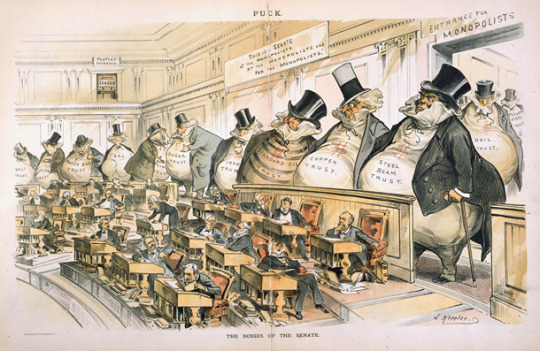
Even as late as 1945, there were barely 400 lobbying groups in the U.S compared to 17,000 today. The cause of the explosion of lobbying as an industry was a combination of the post-war expansion of the U.S government and changes to campaign finance law in the wake of Watergate. The Federal Election Campaign Act (FECA) sought to regulate campaign spending and campaign finance in response to perceived corruption in Federal elections, and was further strengthened by major amendments in 1974 that set hard limits on contributions and spending and created the Federal Elections Commission to enforce FECA.
The Supreme Court, which had begun its slide to the right thanks to LBJ massively fumbling the ball with his Supreme Court nominations and letting Nixon get a bunch of Justices on the Court, struck down a lot of those limits in Buckley v. Valeo in 1976 - which started us down the road to Citizens United. Corporate lobbies very quickly realized that they could expand their influence enormously by acting as the middle-men between corporate cash and elected officials, which now meant that they could wield enormous carrots and sticks to get elected officials to comply with their wishes.

Now, I think there will always be problems with lobbying that come down to the issue of concentrated vs. diffuse interests. There are all kinds of political issues where the majority of the people are on one side of a debate, but where they aren't particularly aware of or engaged with that debate, and even though they have a stake in the outcome, it's rather vague and abstract not something they care about very much. But a lobbying group for a particular "special interest" that is on the other side of that debate and is very aware and engaged and cares about the outcome very much because they stand to gain or lose a lot of money from the outcome. So that lobbying group, which represents a minority position and should lose in the democratic process, will invest the necessary resources in order to win.
The only way to fight this, sadly, is for social movements to be just as organized as lobbyists. For the longest time, it was the labor movement that acted as the "countervailing power" in American politics, because they had the manpower and the money to effectively lobby the Federal government not just on behalf of unions but also on behalf of low-wage workers or racial minorities or consumers and so forth. The problem is that the labor movement doesn't really have that manpower and money any more, but nothing has really replaced it in American politics, in no small part because the left is not immune to America's instinctive hatred of politics and institutions.
And yes, the other major thing that we could do to fight "legalized bribery" is to break up the nexus between campaign finance and lobbying, but in order to do that, we'd have to overrule about fifty years of Supreme Court precedents, and that's not going to happen without the Democratic Party successfully taking back control of the Supreme Court.
#u.s politics#u.s history#political history#political science#lobbying#political economy#labor history#campaign finance
51 notes
·
View notes
Text
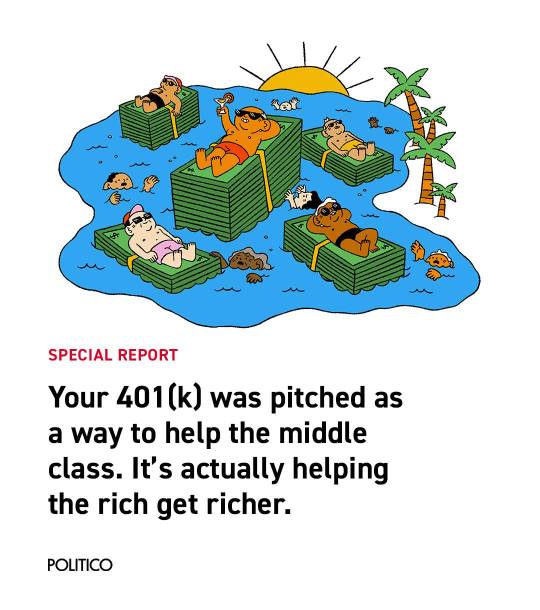

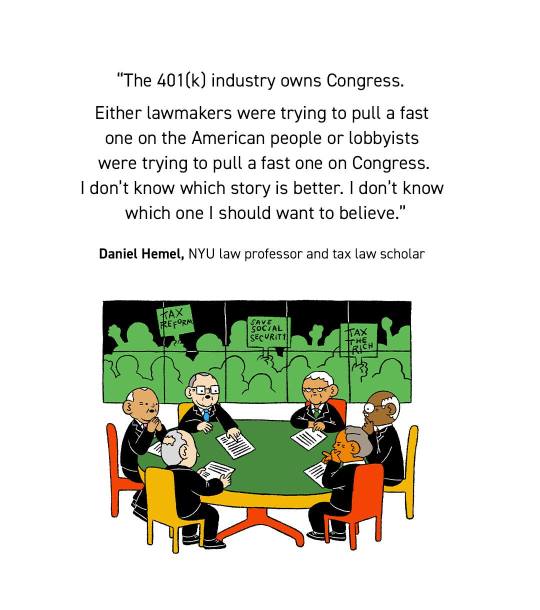
x
#401(k)#savings#tax-advantaged retirement#bipartisan legislation#wealth gap#federal budget#financial industry#lobbying#retirement security#tax law#retirement savings#bipartisan#wealth disparities#federal deficit#financial services industry#tax-advantaged accounts#tax breaks#Congress#lobbyists#Social Security#Medicare
15 notes
·
View notes
Text
Y'all ever look at this?
I was doing some research about healthcare and stumbled into this lobbying tracker and I am...pissed off???
Free rage machine over at opensecrets

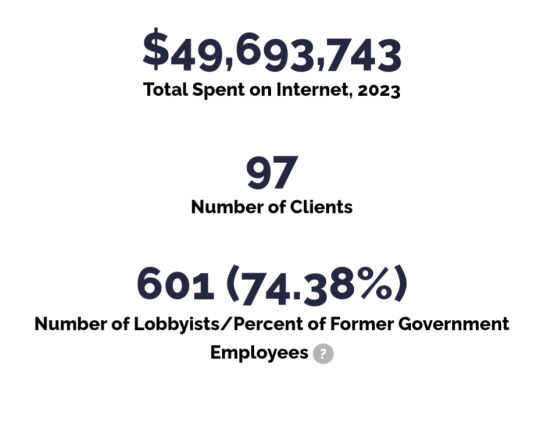
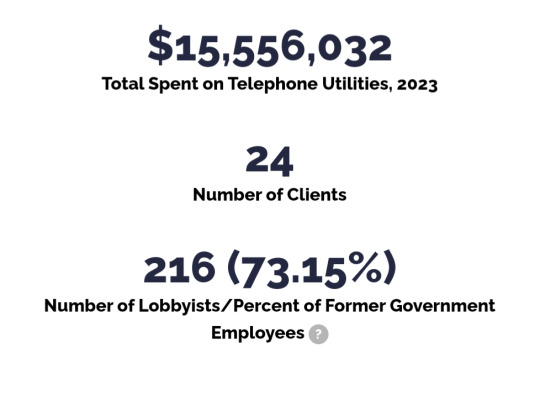

#politics#Lobbying#us politics#us government#congress#senate#oil#gas#clean energy#climate change#data protection#capitalism#healthcare#health insurance#oil company#gas company
64 notes
·
View notes
Text
Qui aurait cru que cette déclaration serait un jour contestée ?
#woke#wokisme#woke liberal madness#wokism#gender theory#gender#lgbt#lgbtqia#lgbtqiia+#lgbtq#lgbtqplus#lobbying#lobby#save the children
50 notes
·
View notes
Text
#politics#tory#conservative party#uk#private health#ukpol#neoliberalism#privatisation#corruption#lobbying
138 notes
·
View notes
Text

Are capitalists and their lobbies doing actual work?
#Are capitalists and their lobbies doing actual work?#capitalism#anti capitalist#lobbies#lobbying#lobbyists#capitalist hell#capitalist dystopia#capitalist bullshit#ausgov#politas#auspol#tasgov#taspol#australia#fuck neoliberals#neoliberal capitalism#anthony albanese#albanese government#wage slavery#slavery#slave wages#slaves#slave#employment#employees#employers#eat the rich#eat the fucking rich#class war
10 notes
·
View notes
Text
#i love this person they are honestly the only one whos managed to explain this properly#dnc#democrats#republicans#politics#tiktoks#capitalism#lobbying#lobbyists
14 notes
·
View notes
Text
ETOBICOKE – Amidst the Ford Conservatives’ corruption scandal, the Ontario NDP has filed an official complaint with Elections Ontario over questionable donations made to the Conservative Party.
The donations in question appear to be from Municipal Solutions, a lobbying company helmed by John Mutton, who multiple sources identify as the “Mr. X” from the Integrity Commissioner’s report.
Ford’s Conservative Party can’t say who actually paid for these donations, which were for tickets to a record-breaking $6 million fundraiser held behind closed doors. Official documents appear to suggest Municipal Solutions purchased two $1,500 tickets to a Conservative fundraiser and gave them to municipal politicians.
The Conservative Party’s required donations disclosures to Elections Ontario do not include the names of Mutton, the two municipal politicians who used the tickets, or Municipal Solutions. [...]
Continue Reading.
Tagging: @politicsofcanada
61 notes
·
View notes
Text
this is why the Political Hacks don't do what is best for "we the people" they are beholden to Corporate Donors> Lobbyists at the state and federal level reported over $46 billion in combined federal and state lobbying spending since 2015

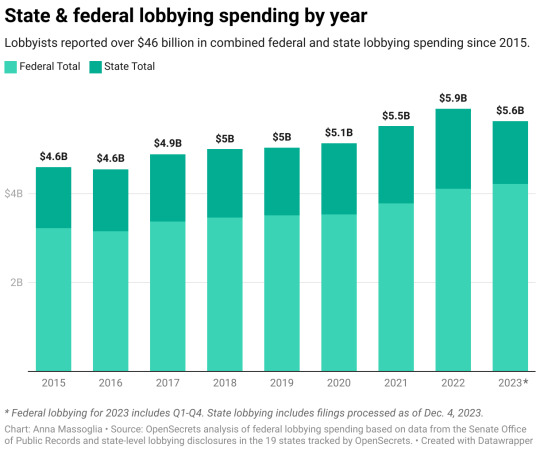
9 notes
·
View notes
Link
Agribusiness employs an army of lobbyists in Brussels. It makes sure policymakers are hearing these five core messages over and over in response to the European Green Deal, the Farm to Fork Strategy, and corresponding legislation ranging from the Sustainable Use of Pesticides Regulation (SUR) to the Biodiversity Strategy.
The four largest pesticide firms employed over 40 lobbyists last year. Companies also use their vast resources to employ multiple “lobby outfits”, Nina Holland from Corporate Europe Observatory told DeSmog.
One of these is public relations firm Hume Brophy, which previously lobbied for Peabody Energy – a coal company linked to climate science denial – and the World Coal Association. Hume Brophy has lobbied on various elements of the green farming strategy for clients that include Bayer and Euroseeds.
Members of the industry also club together through trade bodies and associations. Groups like CropLife Europe, Fertilizers Europe, Euroseeds, and Cefic enjoy significant clout in EU spaces, and are regularly invited to speak at major conferences and provide their expertise as part of advisory groups that guide the commission on everything from fertiliser products to its soil strategy for 2030.
US academic Jacquet told DeSmog that arms-length trade bodies help companies create multiple and contradictory narratives – allowing them to support green reforms, while simultaneously opposing action. “The companies say ‘we are pro-science, we are pro-policy, we are pro-public health’, but then they fund the trade groups to do the dirty work,” she said.
With just a handful of the same companies dominating the seed, fertiliser and pesticide sectors, the membership of these trade bodies overlap. That means that the preferred messages of a few companies are heard many times over in a decision making process. For example, members of advisory bodies that assist the European Commission to draft and implement legislation – called “Expert Groups” – sometimes represent a much smaller range of voices than it appears.
Earlier this month, DeSmog revealed that 80 percent of the members and observers of the “Expert Group on the European Food Security Crisis Preparedness and Response Mechanism” – a multi-stakeholder group convened by the European Commission – were from industry. Four of the trade associations in this group represent BASF, three represent Bayer, and two represent Syngenta and Corteva. Members of the Expert Group have repeatedly advocated for “slower” implementation of the EU’s green farming plans during advisory meetings.
68 notes
·
View notes
